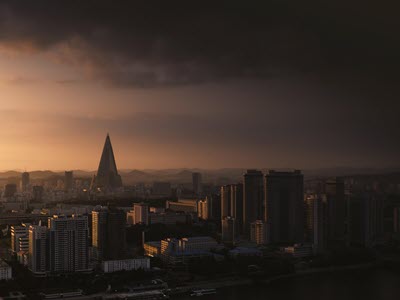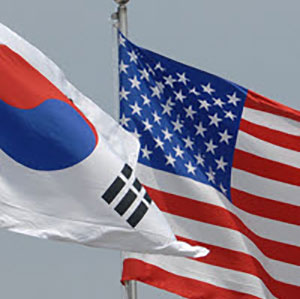A New Low for North Korean Human Rights
Sandra Fahy argues that North Korean human rights have reached a new low due to a combination of factors that are inadvertently emboldening the Kim Jong-un regime and eroding previously achieved human rights successes.
The last five years have seen widespread consequences from government responses to contain the Covid-19 virus and subsequent economic recessions. These developments have caused significant changes in the Democratic People’s Republic of Korea (DPRK). This commentary argues that North Korean human rights have reached a new low due to a combination of factors that are inadvertently emboldening the Kim Jong-un regime and eroding previously achieved human rights successes. While some of these factors originate in the DPRK, others originate outside the country.
Backsliding Inside the DPRK
During the Covid-19 pandemic, North Korea was isolated as never before, being the first among nations to close its borders in January 2020. The border with China had been a lifeline for unofficial market smuggling since famine in the 1990s had given rise to an illicit economic life independent of the regime. Yet, this lifeline has been blocked since early 2020 when North Korea created a two-kilometer buffer zone along its border with China. According to Human Rights Watch, soldiers were ordered to shoot on sight anyone entering the area without permission. The following year Kim-Jong-un ordered the construction of concrete walls and high-voltage wire fences. Several North Koreans who attempted to escape in 2023 were killed by detonated landmines, strongly suggesting that landmines are part of the new robust controls. After these extremes went into effect, only 63 defectors arrived in South Korea, which is the lowest number since the famine of the 1990s. Although the border at Rason opened for a few days in January 2025, it is closed again at the time of writing.
At the start of the pandemic, these border restrictions forced international aid groups, foreign diplomatic workers, and tourists to leave North Korea. Humanitarian organizations that temporarily halted their activities in 2020 have yet to return. Seven of the UN agencies that had been operating, including UNICEF, the Food and Agriculture Organization, and the World Health Organization, have expressed interest in their international staff returning, but they have not heard back from the DPRK. The gains made prior to the Covid-19 pandemic in terms of infant and maternal mortality and malnutrition, among other issues, have likely been lost. Some organizations still provide support, but they do so through the DPRK government and thus without international oversight.
The Kim regime has simultaneously rolled out a series of laws focused on heightening its control of language and thought: the Law on Rejecting Reactionary Thought and Culture (2020), the Youth Education Guarantee Law (2021), and the Law on Protecting the Pyongyang Cultural Language (2023). For the first time, these laws impose the death penalty if violated. Public executions have increased following their implementation. Other new laws also allow for the death penalty: the Law on the Prevention of Drug-Related Crimes and the Law on Emergency Anti-epidemic Work, enacted in 2020, equate the emergency quarantine period with wartime (article 8) and authorize the death penalty for violations of orders or instructions related to emergency quarantine operations (article 65).
Backsliding in the International Sphere
Meanwhile, organizations worldwide working on humanitarian issues have been severely affected by the economic setbacks of Covid-19 as their funding dwindles. The Trump administration’s recent freeze on U.S. State Department grants for aid organizations, with exceptions that do not include the DPRK, has further compounded an already uncertain situation and endangered decades of work by North Korean human rights groups. Organizations such as Citizens’ Alliance for North Korean Human Rights and the Database Center for North Korean Human Rights are now in “survival mode.” These organizations, among others funded in part by the National Endowment for Democracy and the State Department’s Bureau of Democracy, Human Rights, and Labor—both established by Congress—raised global awareness and worked with the United Nations to produce the 2014 UN Commission of Inquiry report finding the Kim regime culpable for crimes against humanity.
After decades of tireless work by human rights organizations, we are now backsliding on human rights in North Korea and throughout the world. These setbacks are occurring at a time when the Kim regime’s human rights violations have become more widespread and systematic, both domestically and internationally. Although North Korea is more self-isolating than ever, it is clear that the consequences will not be borne there alone. The DPRK, for example, has sent soldiers to fight with Russia against Ukraine and laundered money from a historic crypto heist of $1.5 billion.
Policy Options
The UN special rapporteur on human rights in the DPRK, Elizabeth Salmón, has issued a statement on the dire financial situation of civil society actors working to protect the human rights of the North Korean people. The consequences of further backsliding on this issue will be legion and borne primarily by U.S. allies South Korea and Japan. To reverse this trend, the following policy steps are imperative.
To begin with, funding for organizations working on DPRK human rights on the Korean Peninsula must be reinstated. Leveraging protection for human rights on the peninsula will ensure that the humanitarian crisis does not worsen or continue unchecked. Funding for human rights organizations contributes to the long-term economic stability of the Korean Peninsula by mitigating the investment risk posed by an unbridled North Korean regime. The previous three decades have enabled North Korean defectors, through human rights partitioners, to weaken the control of the regime. North Koreans view the United States and other “enemy” countries differently as a result of information smuggling. The United States has benefited from human intelligence gathered from networks inside the country through clandestine channels. Cessation of funding will sever connections that provide on-the-ground information that would take decades to achieve again, making North Korea a zone of mystery for the United States.
To ensure that North Korea does not return to terra incognita, we must press the North Korean government to permit entry of international aid workers for oversight of operations funded internationally. Programs risk backsliding into worse conditions unless operations continue, yet international staff are not permitted entry to the country to oversee work funded by the international community. International oversight ensures that the most vulnerable are provided aid, that humanitarian issues do not spread across borders, and that resources are not siphoned off toward the military.
Sandra Fahy is an Associate Professor in the Global and International Studies Program, Faculty of Public and Global Affairs, at Carleton University in Ottawa, Canada.



